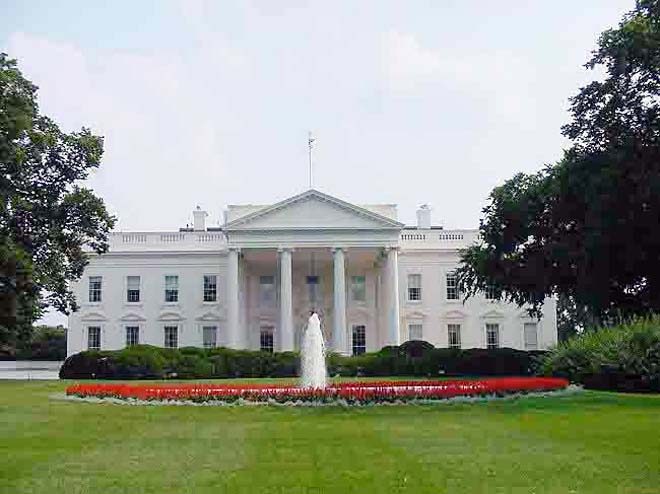Azerbaijan, Baku, Feb. 13 /corr. Trend D.Ibrahimova / The U.S. President Barack Obama must not wait the results of presidential elections in Iran in order to begin talks with Teheran, since their results will not influence the negotiation process between the countries.
Presidential elections in Iran will take place in June 2009. The President of France, Nicolas Sarkozy, said on Wednesday that the U.S. President Barack Obama must begin talks with Teheran, when the results of presidential elections in Iran are known. This statement was made after several days after the former President of Iran Muhammad Khatami put forward his candidature for the participation in the presidential elections.
"I don't think Iran's election is a factor in the new administration's still-emerging policy towards engaging Iran," Andrew Grotto, American expert on Iran, told Trend .
Former President of Iran Muhammad Khatami (from 1997 to 2005.), head of the camp of reformists officially confirmed that he will participate in the upcoming presidential elections. The current President of Iran Mahmud Ahmadinejad still has not officially confirmed his participation in the elections. Other candidatures for the participation in the elections have not been put forward yet.
Observers consider that the talks between Washington and Teheran do not depend on the victory of reformist candidate or radically inclined President Mahmud Ahmadinejad.
During his term, the former President of Iran Muhammad Khatami attempted to establish relations with Washington, which broke down in 1980. He stopped the development of Iran's nuclear program, which was stumbling block between the two countries. However, the President of Iran Mahmud Ahmadinejad restored the development of Iran's nuclear program, peaceful character of which causes doubts of the USA.
"The talks between Iran and the United States will begin when both sides will clearly present their conditions and Teheran will be sure that the USA does not want the replacement of government in Iran," Mohsen Sazegara, American expert of Iranian origin on Iran, told Trend in a telephone conversation.
Iranian officials consider that the United States want the overthrow of the government of Iran, however, Robert Gates, U.S. Secretary of Defense, said during his speech in the airbase Uaytman in March 2008 that the USA wants not the overthrow of government, but change in the behavior of Iran. The chairman of Sepah, Mammadali Jafari, said that the USA wants to hold "velvet revolution" in Iran, but they will not allow to carry out this.
Expert Grotto, researcher of Center for American Progress, said that track will proceed as soon as there is sufficient confidence on both sides that sitting down at the table is worthwhile.
Some in Iran think that it is better to launch negotiations during the presidency of Ahmadinejad.
Obama would better commence talks during Ahmadinejad's presidential term because he is backed by the religious leader of Iran and military, who strongly influences the country's policy, Iranian expert and chairman of Strengthening of Iranian Unity Center Ahmad Zeidabadi told Trend in a telephone conversation.
In accordance with the Constitution, Iranian religious leader Ali Khomeini has a great influence on country's policy. Khomeini controls all the basic levers of the governmental power- court, army and media outlets. The religious leader's authority extended after the amendments made to the Iranian Constitution in 1989. In accordance with Article 110 of the Iranian Constitution, Iranian government's policy is also defined by the religious leader. Iranian former president Khatami attempted to recover relations with Washington. However, Khomeini acted against it.
Iranian six ministers are former generals of Sepah military organization. Largest construction company in Iran "Khatamu anbiya" belongs to Sepah. Sepah also invested $12 billion to develop two gas fields.
The experts' opinions are different over the question on how Ahmadinejad's possible cooperation with the United States will influence his election as a president.
According to Zeidabadi, majority of the forces, who support Ahmadinejad, are inclined to act radically and they regard any cooperation with the USA inadmissible. Cooperating with the USA, Ahmadinejad can lose their support, Zeidabadi said.
Expert Grotto thinks that the U.S.-Iranian cooperation will not influence Ahmadinejad's election as a president. "Iranians care far more about their economy, which is in very serious trouble, than they do about whether their leadership sits down with the United States," the expert told Trend on a telephone conversation.
The inflation reached 28.4 percent in the country. Over 14 million or 20 percent of the population live under poverty.
The U.S. President Barrack Obama, who took his office on Jan.20, said he wants to cooperate with Iran.
Diplomatic relations between the two countries broke in 1980. Since then, presidents of the two countries held no negotiations.
D.Khatinoglu, V.Zhavoronkovo contributed to the article.
Do you have feedback? Contact our journalist at: [email protected]






